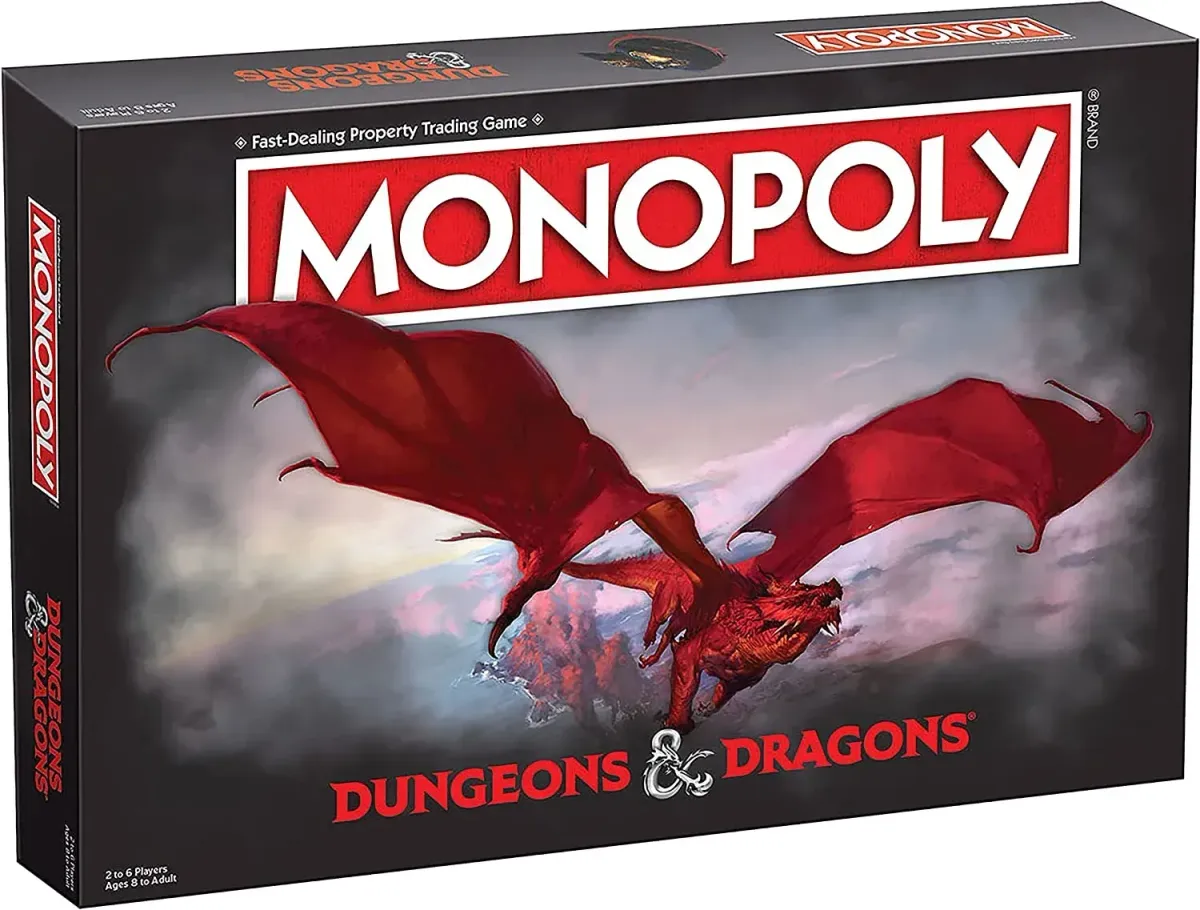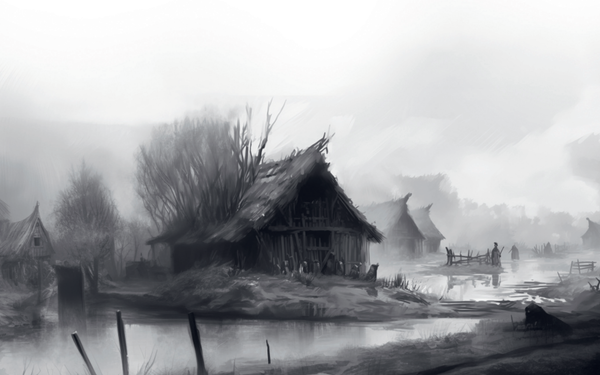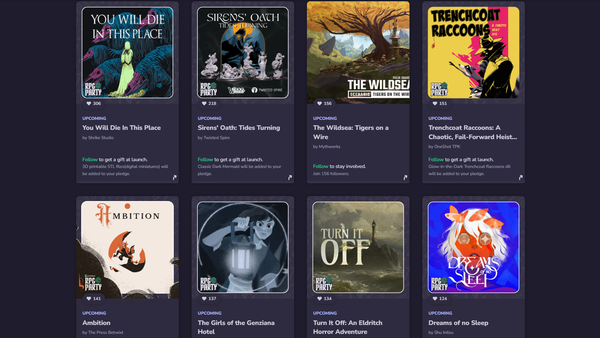How to start game design discourse
It’s actually, like, super easy.

Game design discourse is an easy and horrible way to start your morning, but some people wake up and choose violence.
On one hand, game design discourse is incredibly easy to kick off because there are only like three or four arguments and people have them every year like clockwork. Sometimes twice a year if we’re feeling feisty. Three times if the discourse happens in separate sections of the dozen or so tabletop echo chambers. Everyone is available to participate; gamers, designers, casuals, and even, yes, journalists, which makes the repetition inevitable and quite contentious. It’s a bad time for just about everyone and yet many of us participate despite knowing better, drawn toward the need to send our take out into the void and perhaps receive some small bit of attention back. But you’re here for advice. Or, maybe you’re here to figure out the difference between a discourse cycle and a day that ends in -y.
Start by opening up Twitter. Now, identify the game design discourse you’re most interested in starting.
At some point, a game is where we all just sit down and imagine really hard
First, and this is a big one, maybe even the biggest one, is Systems Matter discourse. It’s the easiest kind of discourse to have because it spans so many interactions. It’s very likely one of the oldest points of order that has been dogging the industry since literally the 70s. There are dozens of different varieties of Systems Matter discourse, but the crux is often focused on different subjective experiences people have when actually playing a game, and how they define playing a game at all. This is the easiest discourse because people’s opinions are often so deeply influenced by their own personal experiences gaming that they forget that everyone else is also playing at their own table, with their own experiences, which are not in any way absolute or universal. Well done.
The best part of starting Systems Matter discourse is that it’s binary: either the system you use to play games matters, or it doesn’t. Easy enough to choose a side and argue your opinion with vim, vigor, and personal experience. You can sometimes get insights into certain design philosophies when Systems Matter discourse pops up: the fruitful void, POSIWID (the purpose of a system is what it does), references to Peterson’s Elusive Shift, whether or not a system is a combat simulator, a dissection of the history of games design, and even discussions on the contemporary understandings of OSR vs Story Games (another timeless source of discourse, which I categorize as Systems Matter, but some may disagree [this is, of course, another form of discourse! Well done, you’ve solved my Systems Matter Discourse riddle]).
It’s worth noting that Systems Matter discourse is typically rooted in two things: how much someone enjoys any one system and how confident they are as a player—either as a roleplayer or a rules-knower. This means that there’s endless ways to approach Systems Matter discourse. D&D is a combat simulator. D&D is an open field for roleplay. TTRPGs have never escaped their wargaming roots. No Dice No Masters has no intrinsic stakes. Game books need art. Neutral failure states are holding game design back. You see what I mean? Screenshot this, and I’m so sure someone will have a response to it. Good luck, soldier. Enjoy your notifications when this one breaks containment.
This is the final, final, final countdown. For real. Last call.
[Game/Mechanic/Style] is Dead discourse. Generally ragebait, but sometimes this discourse is made in earnest. Sometimes it’s hard to tell which one it is, because for the people posting, they believe it so, so genuinely. This sort of discourse is incredibly straightforward, and is usually backed up by vibes. Occasionally money-associated numbers are cited. Usually not. This is the most eye-rolly kind of discourse because it’s opinion dressed up as fact and arguing with it is pointless and typically doesn’t result in anything of value added to the conversation, people just get really really annoyed.
There’s not much more to say here, actually, this is the most pointless form of discourse. It’s so ridiculous. Nothing is dead, this is game design discourse. Give it 6 months and it’ll be back.

Okay, this one is serious.
Another form of discourse is just straight up bigotry. I would not recommend this mode of discourse, because you look like a massive asshole and if you say this sort of shit with your whole chest you’re probably racist, ableist, or homophobic. Generally speaking, if you use “woke” or “DEI” in any way that could be equated with a slur, step away from the computer. Conversations regarding bigotry are important to have, but discourse is absolutely not how I would approach having these sorts of public discussions. Some recurring arguments made in bigotry-based discourse include “this fictional species isn’t racist,” “disability aids don’t belong in fantasy,” and “no queer stuff at my table.” Yucky, yucky stuff, man. If you genuinely believe any of the above, seek help. And stay away from people. Especially me.
The other side of design-as-bigotry discourse is when well-meaning people attempt to educate folks. This generally consists of marginalized people making very good and articulate points that will be misconstrued and taken in bad faith, meaning that the discourse gets circulated even further as folks put in more time and mental effort than bigots are ever worth. To the brave souls who attempt this, I salute you, and I hope you have the block button primed.
Oh, god, there’s so much discourse, where the fuck did it all come from?
Other common discursive moments in the TTRPG ecosystem include: edition wars, whenever anyone tries to decipher a White Wolf ruleset, statements like “solo games are just sad diaries,” when people have opinions on actual play that end up somewhere between gatekeepy, and just straight up weird, and discussion on what makes someone a “real gamer.” Bad! All bad. I need a spray bottle and a whistle to referee this sort of stuff. It’s all exhausting. I love it and hate it with equal fervor.
The one good thing about a lot of game design discourse is that despite how annoying and horrible most of it is, someone out there ends up learning something. The TTRPG industry has long suffered from a lack of historic memory, either because people don’t seek out design and gaming histories or because very few people write stuff down after big conversations happen. Also it’s the internet which is plagued with the processing power of a goldfish’s memory hole. Which is great for you, if you want to start discourse, it only takes a couple well-placed statements and boom, someone’s gonna talk back.
If you use this advice to start shit online, I don’t know you and I don’t condone your behavior. Go touch grass. Read a book. Play a game with your friends. And if you really, really want to start game design discourse, here’s my honest advice.
Don’t.





